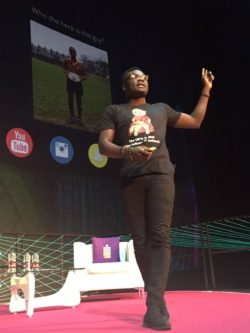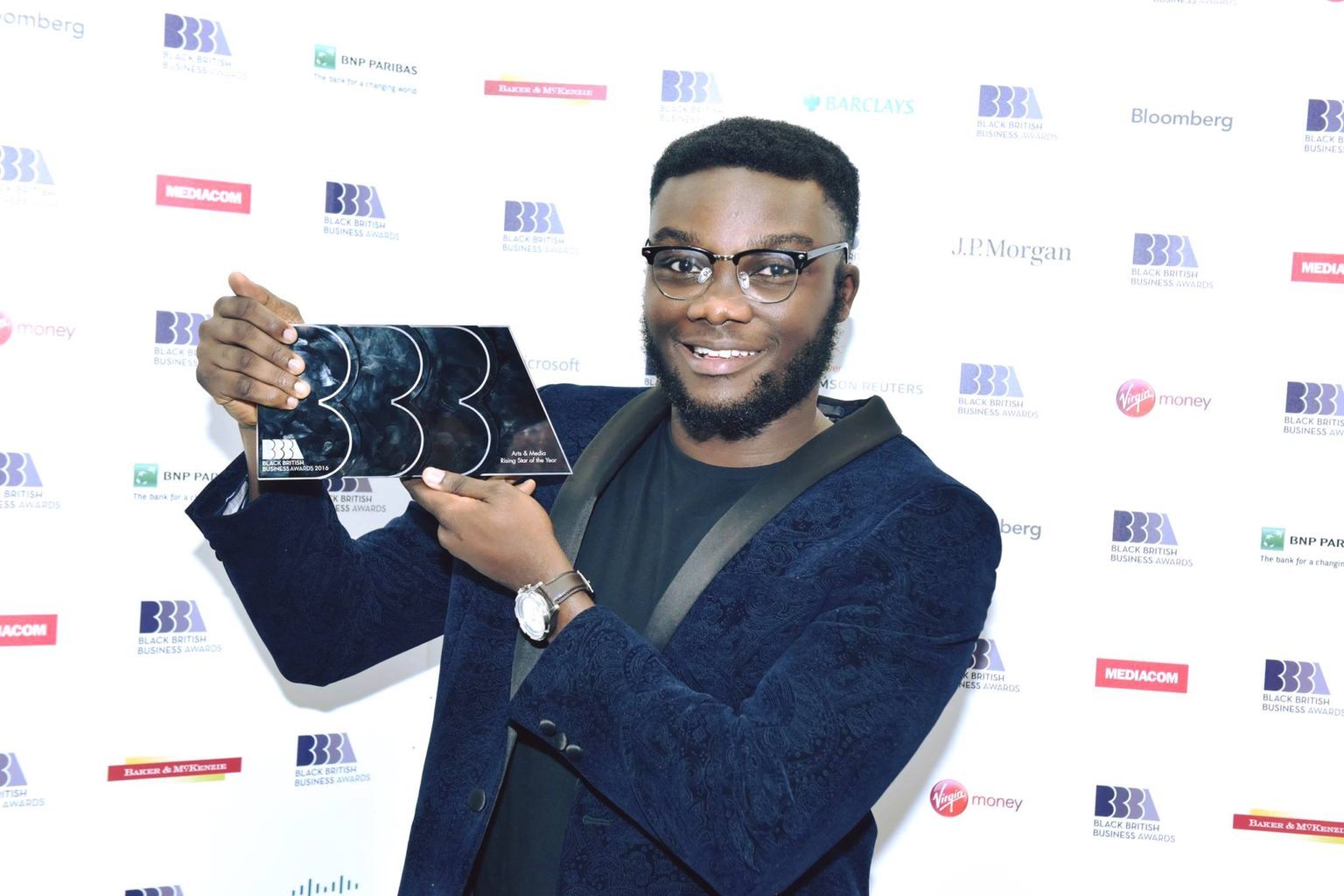Warwick student Timothy Armoo is revolutionising digital marketing
Timothy Armoo, is a Warwick student and founder of ‘Fanbytes’; a start-up that helps brands to build viral social media and video campaigns.
The second-year computer science student recently won the Black British Business Award, demonstrating a recognition by the wider community of his endeavours in tapping into a new form of digital marketing and utilising technology in an interesting way.
Fanbytes is essentially a marketing company that helps brands to collaborate with influencers using technological solutions. According to their website, Fanbytes allows brands to “engage with the 13 – 25 audience through the power of Snapchat.”

The work of Fanbytes is largely three-fold, they allow brands create a campaign on their platform, targeting the age, gender, location and interests of its audience. In this process, Fanbytes offers help designing the advert or editing existing adverts to optimise them for social media platforms. Then brands can decide which ad they want, which is then displayed programmatically across Fanbytes’ influencers’ stories. Using a special formula Fanbytes can measure engagement and provide data and analytics to brands to see how they can improve.
Fanbytes allows brands to “engage with the 13-25 audience through the power of Snapchat.”
When asked about what sparked the idea behind the company, Timothy anecdotally relays a story to the Boar about a pivotal moment he had shared with his 15-year-old cousin which laid the foundations for the company.
“I saw how my cousin was being influenced by popular celebrities on YouTube and to see someone buying so much stuff by someone thousands of miles away in their living room was super interesting.”
He went on to say: “The company I had just sold did boring display advertising and I was looking for the next phase of advertising and by tapping into influencers I noticed the nativeness and authenticity they provided to brands. I noted that this wasn’t accessible to the mass number of brands”.
“I saw how my cousin was being influenced by popular celebrities on YouTube”
Timothy told the Boar that his interest in entrepreneurship stemmed from a desire to create stories, find patterns in things and explain them. He adds: “I had a bet with my friend at 14 that I would not see 500 quid before turning 18 (which might as well have been 5 million) which made me start my first company and the rest is history – I’m now on my third company now having sold my second.”
Entrepreneurship clearly runs through Timothy’s bones. Fanbytes is his third company, prior to Fanbytes he owned a tutoring company where he acted as a middle-man connecting tutors with students. This grew to 65 tutors in just 6 weeks however, unfortunately, this company ultimately ended up failing.
Timothy’s interest in entrepreneurship stemmed from a desire to create stories, find patterns in things and explain them.
Reflecting on the experience, Timothy explains that he “didn’t understand the fundamentals of business”. However, he took on board the lessons learnt and started his second company called EntepreneurXpress which was a digital media company that was later acquired after 11 months. Then he Fanbytes started 2 years after this.

It looks like third times the charm as over the past 24 months, Fanbytes has gone from strength to strength. Since its conception just 24 months ago, Fanbytes has grown exponentially. As a group of seven people, they have managed to build the company to a seven-figure valuation. They have been able to raise three rounds of funding and have secured a wide range of big brands as clients, including the likes of Disney, Walkers, Adidas and Nickelodeon who all use the services Fanbytes provides.
Disney, Walkers, Adidas and Nickelodeon all use the services Fanbytes provides.
On his success, Timothy highlights: “Don’t focus on being famous. Focus on providing the best possible experience for your customers and if you’re any good they’ll tell all their friends and you will become famous that way”.
Whilst, Fanbytes is doing exceptionally well today, the journey was not always smooth sailing. Timothy explains the amount of stamina it required to keep going in the early days.
“The biggest roadblocks was seeing what was important and focusing on that. When you’re in the early stages of building something you’re in a search period where everything seems interesting and worth pursuing but tight focus always wins.”
“Focus on providing the best possible experience for your customers and if you’re any good they’ll tell all their friends”
On entrepreneurship at Warwick, Timothy is impressed with the atmosphere for start-ups. He says: “I particularly like Frecibo, they are started by a group of computer science students. Although people are starting companies these tend to be dominated by business people as opposed to technical people. I think more technical people should be encouraged to start companies and not be code monkeys.”

Whilst he enthuses about the start-up scene at Warwick, Timothy also suggests that being at Warwick was actually a hindrance to his success rather than facilitating it. He clarifies, “I spend about 3/4 days a week at our office in West London so balancing the two is a juggling experience.”
“I particularly like Frecibo; I think more technical people should be encouraged to start companies and not be code monkeys.”
Timothy also highlights some deficiencies with Warwick and areas for improvement to make it more conducive for entrepreneurship. He argues that there are two main ways Warwick can encourage start-ups and provide support.
“Firstly, increase the funding for business students who start companies so they can whip up a prototype quickly without having to search for a technical founder. Secondly, increase the opportunities for technical cofounders to incubate ideas and work on them. Although, Warwick Hack are doing a pretty sound job of this.”
Warwick needs to increase funding for students who start companies
His advice for budding entrepreneurs and start-ups in the early stages would be: “Keep grinding. I think perseverance is the chief factor to start-up successes and if you stay persevering you’ll win.”
According to Timothy it is important to “aggressively learn”. He explains that a lot of start-ups are venturing into things that have already been done therefore, it is vital to research what made them a success and utilise that.
“Keep grinding.”
He adds: “Using your age as a strong factor, seek out these people and learn from them and then replicate exactly what they do and learn from there”.

Comments